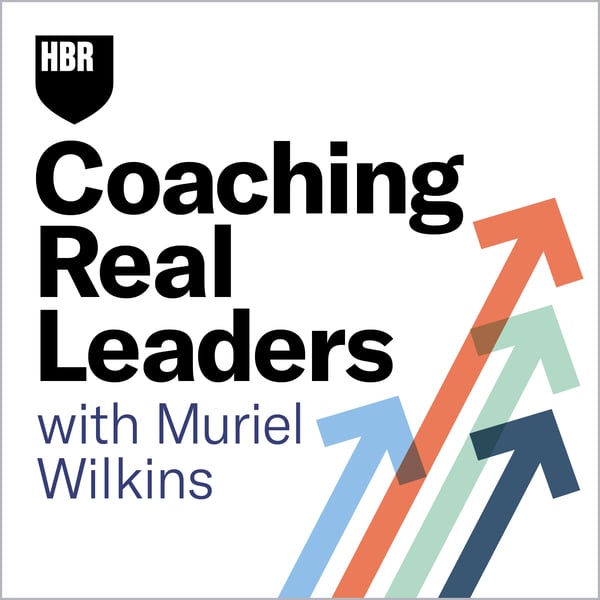How Do I Make a Career Change when the Odds Are Stacked Against Me?
Coaching Real Leaders
Harvard Business Review / Muriel Wilkins
4.8 • 660 Ratings
🗓️ 31 October 2022
⏱️ 50 minutes
🧾️ Download transcript
Summary
Transcript
Click on a timestamp to play from that location
| 0:00.0 | HBR Presents. |
| 0:03.0 | I'm Yario Wilkins, and this is Coaching Real Leaders, part of the HBR Presents Network. |
| 0:18.5 | I'm a longtime executive coach who works with highly successful |
| 0:22.2 | leaders who fit a bump in the road. My job is to help them get over that bump by clarifying |
| 0:27.5 | their goals and figuring out a way to reach them so that hopefully they can lead with a little |
| 0:32.5 | more ease. I typically work with clients over the course of several months, but on this show, we have a one-time coaching meeting focusing on a specific leadership challenge they're facing. |
| 0:48.5 | Today's guest is someone will call Victor to protect his confidentiality. |
| 0:53.1 | He's spent much of his career as an attorney and is also neurodivergent. |
| 0:58.0 | I'm originally from Latin America and came from a very competitive immigrant background |
| 1:06.5 | growing up with dyslexia, which was not diagnosed until I was 14 years old. |
| 1:12.9 | Thanks to the tenacity of my parents, with both academics, and didn't let me give up. |
| 1:21.5 | Through tutoring, I was able to go forward, and especially because there were no possibilities of helping people, |
| 1:30.3 | even dyslexia wasn't really the term that was used. |
| 1:34.3 | Victor identifies as Hispanic and immigrated to the United States to pursue his undergraduate studies |
| 1:40.3 | and eventually attained his law degree from a prestigious university. |
| 1:47.8 | My language abilities, I'm fluent in four languages. |
| 1:53.5 | I also was very well traveled and formally trained both as an undergrad and in grad school that went parallel with law school in international affairs. |
| 1:57.6 | And that training and my natural abilities, dyslexics, like any other person who has a |
| 2:04.6 | disability, you can develop much more, much keenly if you can't read that well, but your hearing |
| 2:11.2 | is excellent, coming out from a very elite institution, parachuted me into great opportunities. |
| 2:18.3 | The issue has been that as an attorney, especially in large law firms, |
| 2:24.3 | my ability to show value, which translates into profits through the conventional means of measuring |
... |
Please login to see the full transcript.
Disclaimer: The podcast and artwork embedded on this page are from Harvard Business Review / Muriel Wilkins, and are the property of its owner and not affiliated with or endorsed by Tapesearch.
Generated transcripts are the property of Harvard Business Review / Muriel Wilkins and are distributed freely under the Fair Use doctrine. Transcripts generated by Tapesearch are not guaranteed to be accurate.
Copyright © Tapesearch 2025.

